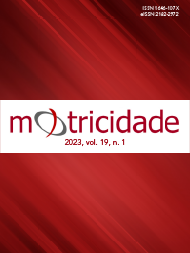An analysis of the perception of brand equity among members and non-members of football teams and its influence on behavioural intentions
DOI:
https://doi.org/10.6063/motricidade.27398Palavras-chave:
Awareness, Latent Class Analysis, Associations, Consumer behaviourResumo
A strong brand has been identified as a long-term success factor. Still, there is a gap in the perception of different types of fans about the brand equity dimensions of football teams and how their dimensions influence loyalty in the Brazilian context. The purpose of the present study was to analyse the perception of brand equity among members and non-members of football teams and its influence on behavioural intentions. Data were collected from 420 fans of a State Football Championship from Brazil through an online survey and analysed using multigroup structural equation modelling. In that context, the brand mark was not an association considered by the fans, and the analysis indicated a better perception of the brand equity dimensions by the members, and the analysis with the complete sample indicated the relevance of the model (R² = 77%). Specifically, internalisation, social interaction, and management dimensions significantly impacted the behavioural intentions of football fans. The study provides an understanding of the dimensions of brand equity in a context not previously studied and the different perceptions of these dimensions through multigroup analysis. Further, it informs marketers of the brand equity elements that must be taken into account in an attempt to leverage team behavioural intentions.
Downloads
Publicado
Edição
Secção
Licença
Os autores dos manuscritos submetidos para publicação deverão ceder, a título integral e permanente, os direitos de autor (copyright) à revista Motricidade e às Edições Sílabas Didáticas. A cedência de direitos de autor permite a publicação e divulgação do artigo em formato impresso ou eletrónico e entrará em vigor a partir da data de aceitação do manuscrito. Os autores concedem, ainda, os direitos para a revista Motricidade utilizar e explorar o respetivo artigo, nomeadamente para licenciar, ceder ou vender o seu conteúdo a bases de resumos/indexação ou outras entidades.
Nos termos da licença “Creative Commons”, os autores poderão reproduzir um número razoável de exemplares para uso pessoal ou profissional, mas sem fins comerciais. Nos termos da licença SHERPA/RoMEO, os autores poderão, ainda, disponibilizar/arquivar uma cópia digital final (versão postprint) do artigo no seu website ou no repositório científico da sua instituição.


